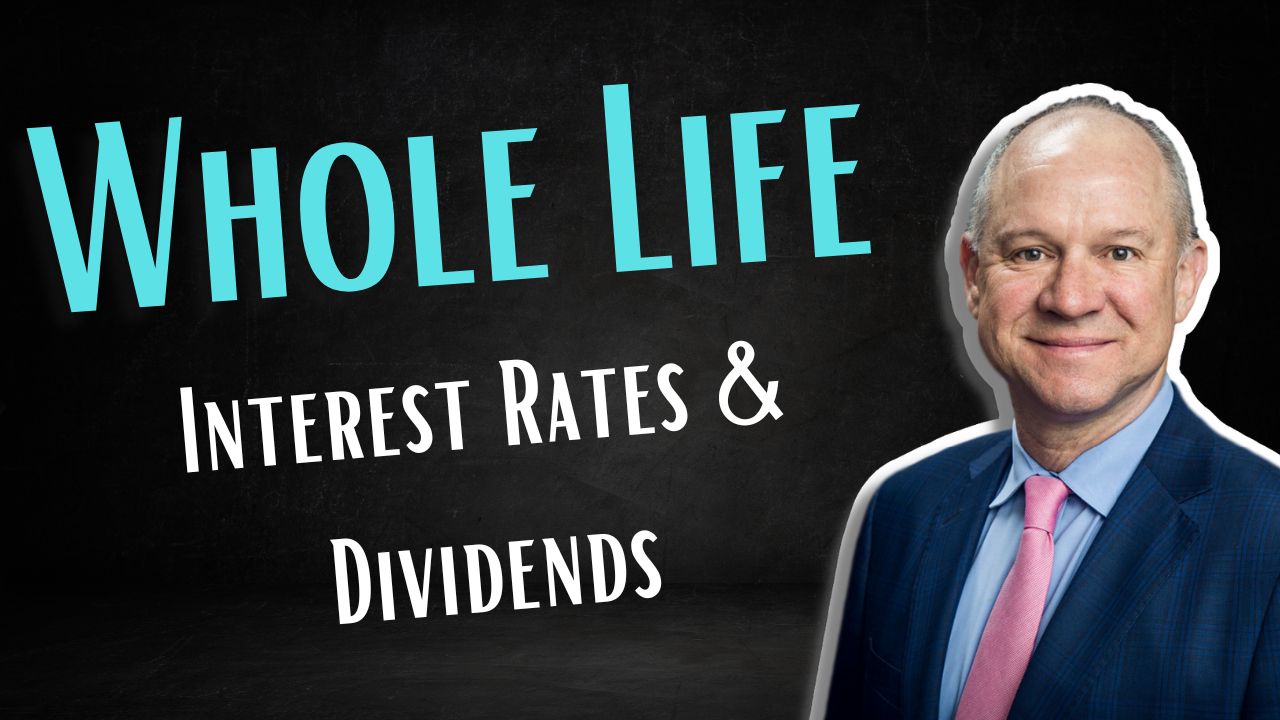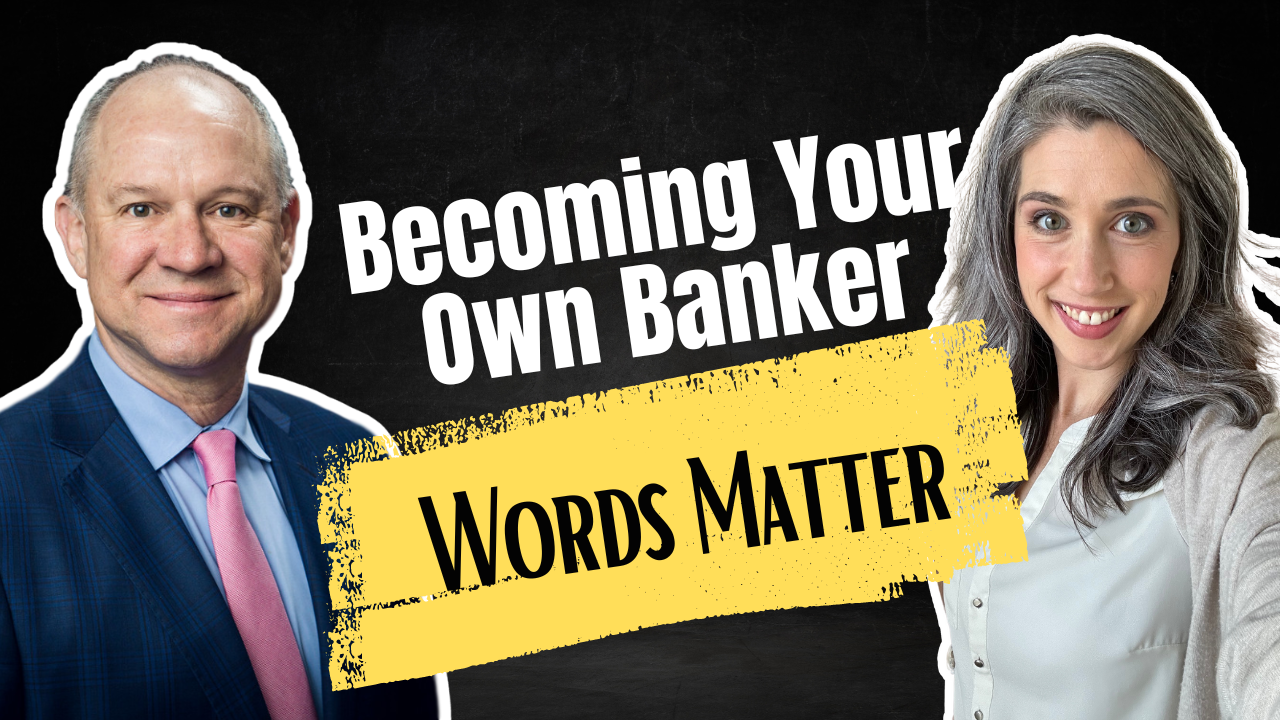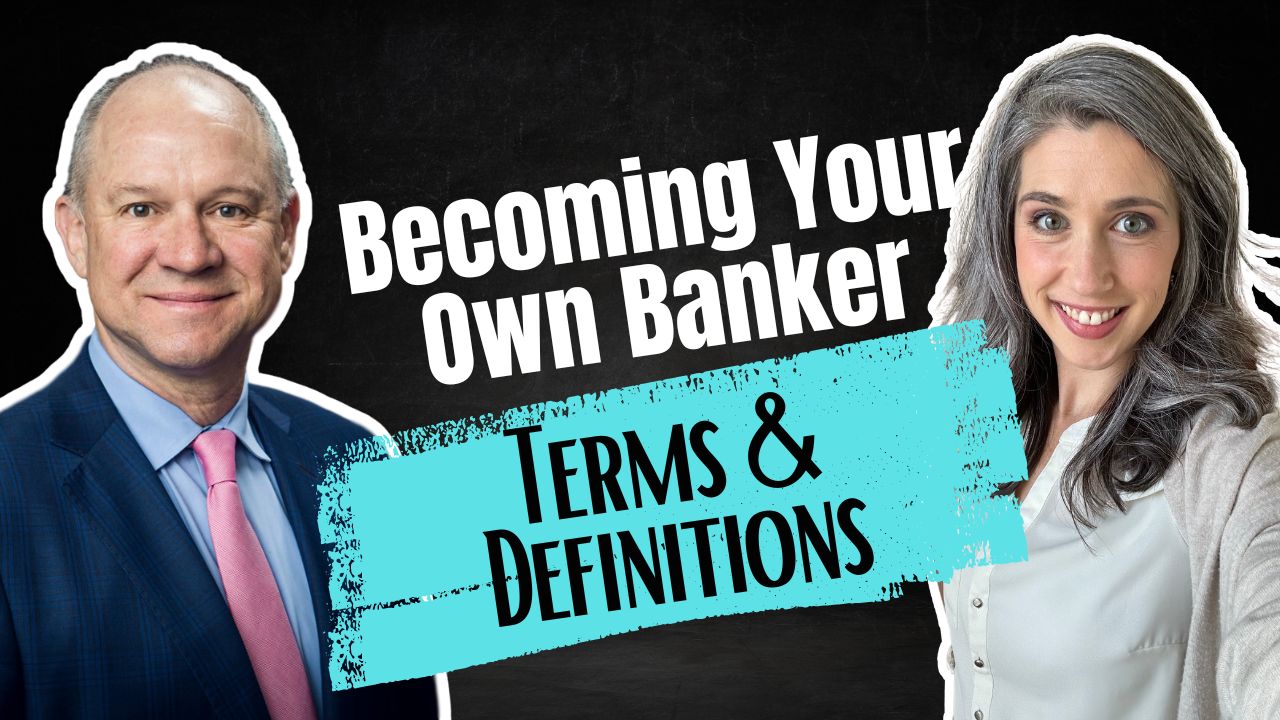
Interest Rates and Whole Life Insurance
Ready to gain a new perspective on how interest rates affect the economy? What about how interest rates and whole life insurance relate to each other? Let us illuminate Nelson Nash’s wisdom on adopting a lifestyle that resonates with the Infinite Banking Concept without stretching yourself too thin. We also stress the need to take a panoramic view of your financial situation and the significance of long-term thinking.
Finally, we will be your sherpa as we climb the mountain of financial control and self-education. We’ll explore why people often settle for financial misery and resist investing time to learn wealth-building techniques or modify their habits. We’ll also highlight the value of understanding the concept of Whole Life Insurance to maximize its benefits. Prepped for this journey? Join us and be prepared to expand your financial knowledge and planning prowess.
Podcast: Play in new window | Download (Duration: 45:30 — 52.1MB)
Subscribe: Apple Podcasts | Spotify | Android | Pandora | RSS | More
Table of Contents
How Does Whole Life Compare to Other Assets?
[02:02] “The thing that people don’t realize is that as you devalue currency, interest rates tend to go up. And when interest rates tend to go up, then dividends follow. Historically, they’ve always followed.”
So, while people expect their assets to be devalued in such an inflationary environment, life insurance does the opposite. This is mostly because insurance company’s investments are heavily driven by bonds, so their profits follow the Federal interest rates. And even if insurance policies are slow to adopt these high interest rates, you can rest assured that the mutual insurance companies will get your money to you. And in the meantime, you’re not losing money.
It’s important to remember that the value of whole life insurance is going to unfold over your whole life. In other words, it’s not an asset you buy today and get rich from. It’s an asset you buy today that allows you to have more peace of mind, and make more strategic choices over the course of your life, all while building your cash reserves. Twenty years from now, you’ll be glad you started as soon as possible, and may even wish you started twenty years sooner.
The best time to get started was years ago, but the second best time is today. We don’t have time machines to change the past, but by starting the process today, you’re going to get the maximum benefits possible from this point forward. So don’t be afraid to just make the choice. Your future self will thank you.
What Nelson Says About Whole Life
Infinite banking is simply a concept or a strategy that you can apply to your usage of whole life insurance, in order to be a more efficient steward of the asset. That being said, Nelson Nash knows what it takes to be a good steward and a good IBC practitioner, so it’s important to look to his guidance when in doubt.
One of the most important things Nelson says is to think long-term. If you apply short-term strategies to a long-term product, you are not going to get the results that you desire. Instead, you’ll end up burning through your money and you won’t have it when you really need or want it.
That being said, Nelson also says not to be afraid to capitalize, or use, your cash value. It’s there for you to use. The balance is in making decisions based on long-term benefits, like having a repayment strategy in place and/or capitalizing on cash-flowing investments that will create more wealth for your family.
Are You Afraid to Capitalize?
If you’re going to capitalize on your policy, you’ve got to have capital. You build capital by funding your policy. And while PUAs are a part of that, you don’t want your ratio of base premium to PUAs to be too low. This can often be an excuse for people NOT to fund their policy each month, which makes it harder to capitalize.
[11:34] “When you do a policy that is a 10/90 policy—10 percent base, 90 percent PUAs—to me that’s [saying] you’re afraid to capitalize.”
The argument for having a premium structured this way is that people think, “What if I can’t pay my premium that month?” After all, the base premium is the amount you must pay, the PUAs are optional with a PUA rider. In other words, this is a decision made from fear, because someone is concerned that they won’t be able to make payments. It’s short-term thinking.
[19:00] “Wealth is grown.”
Dividends, Interest Rates, and Whole Life Insurance
One reason it’s advantageous to have a healthy base premium is because the part of your cash value that grows due to base premium earns more dividends. So you want your cash value to grow from base premium as much as you want PUAs.
Now, PUAs do earn dividends, too, yet insurance companies have their own proprietary calculations for how the dividend is distributed across cash value from base versus PUA. And when you earn dividends and you apply them to your cash value, they’re considered a single premium PUA. So every time you earn a dividend, you’re earning it on your full cash value: the base premium, the PUAs, and all the dividends you’ve already received. This compounding interest is the most powerful part of your policy apart from the loan provision, which only makes the compounding more meaningful.
The other benefit of dividends is that they follow Federal interest rates. Right now, the average dividend is about 6% Gross. Which is far better than you can get with a bank. And while the rates may go down again, they can also go up. The advantage here is that you never experience a down year, and once your cash value increases, that’s your new guaranteed floor.
Life Insurance Illustrations
Life insurance illustrations are a snapshot in time. They’re only accurate until your cash value increases, and then everything changes. After all, the illustration shows you a projection based on the current declared dividend. When you actually receive the dividend, you may find it’s a slightly different number than the projection, at least on the non-guaranteed side. (Sometimes it’s even better than projected!)
At this point, all future calculations must be based on this new and accurate number—on the guaranteed side (your minimum guaranteed cash value) and the non-guaranteed side (what you can expect from dividends). Since a new dividend is declared each year, illustrations will also change based on the new and updated dividend.
This is to say, an illustration gives you a good idea of how things will go, though it’s only a projection. You can expect everything to move upward on a similar curve, though your exact numbers can vary.
[27:40] “It just so happens we’re coming out of a low interest rate environment. So if you’ve been on the fence [about] whether to start a whole life insurance contract right now, you are at a unique time in history to take advantage of rising interest rate environments.”
Book A Strategy Call
Do you want to coordinate your finances so that everything works together to improve your life today, accelerate time and money freedom, and leave the greatest legacy? We can help! Book an Introductory Call with our team today https://themoneyadvantage.com/calendar/, and find out how Privatized Banking, alternative investments, or cash flow strategies can help you accomplish your goals better and faster. That being said, if you want to find out more about how Privatized Banking gives you the most safety, liquidity, and growth… plus boosts your investment returns, and guarantees a legacy, go to https://privatizedbankingsecrets.com/freeguide to learn more.
Becoming Your Own Banker, Part 29: Words Matter
Ever felt like financial jargon was designed to confuse rather than clarify? Join us as we navigate the labyrinth of financial terminology, particularly within the infinite banking sphere. It’s not just about learning by rote; it’s about cementing a rock-solid financial strategy based on clear, precise language. By dissecting common misconceptions, we aim to transform…
Read MoreBecoming Your Own Banker, Part 28: Infinite Banking Definitions
Have you ever felt like you’re on a financial hamster wheel, constantly spinning but never gaining traction? Join us as we unpack the epilogue and glossary of Nelson Nash’s “Becoming Your Own Banker.” It’s a journey through the intricate philosophy of IBC, as we cover Infinite Banking definitions that shows how effective money management can…
Read More


